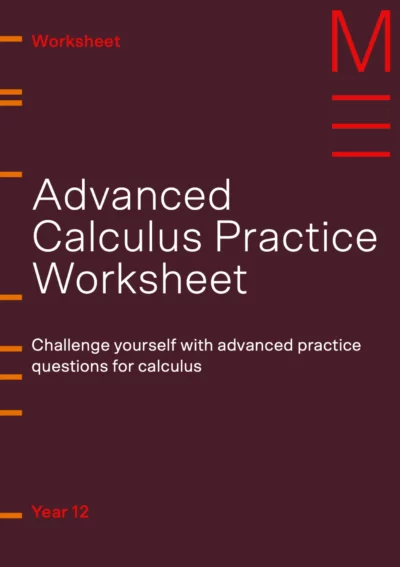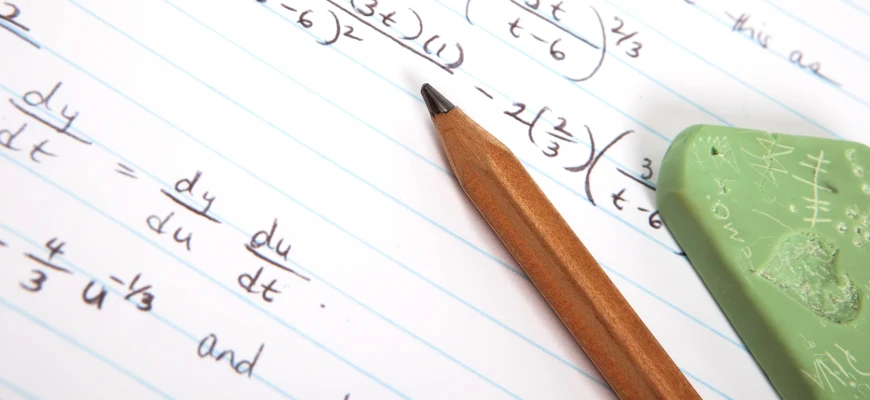Welcome to Matrix Education
To ensure we are showing you the most relevant content, please select your location below.
Select a year to see courses
Learn online or on-campus during the term or school holidays
Learn online or on-campus during the term or school holidays
Learn online or on-campus during the term or school holidays
Learn online or on-campus during the term or school holidays
Learn online or on-campus during the term or school holidays
Learn online or on-campus during the term or school holidays
Learn online or on-campus during the term or school holidays
Get HSC exam ready in just a week
Select a year to see available courses
Science guides to help you get ahead
Science guides to help you get ahead
Want to know more about Year 11 and 12 calculus? This guide breaks down key concepts, formulas, and strategies to help you tackle calculus and improve your results.

Join 75,893 students who already have a head start.
"*" indicates required fields
Related courses
Calculus can seem tricky at first, but it’s actually one of the most exciting parts of Maths! Whether you’re in Year 11 or Year 12, learning calculus is about more than solving equations. It’s about understanding how things work in the real world, like calculating speeds, optimising costs, and analysing changes over time.
Let’s get into what advanced calculus is all about and how you can nail it.

Level up your skills in calculus by taking on these challenging problems!

Fill out your details below to get this resource emailed to you.
"*" indicates required fields
Calculus is a branch of Maths that helps us understand how things change and how we can calculate totals over time or space. It’s a key part of Year 11 and 12 Maths and builds on the basics you’ve already learnt, like algebra and geometry. It takes those ideas to a more advanced level.
There are two main parts of Year 11 and 12 calculus:
For students in Year 11 and 12, calculus is more than just another subject—it’s a tool that can open doors. Here’s why it matters:
Basically, calculus is about solving problems and understanding the world around us. Whether you’re analysing motion, designing technology, or studying nature, calculus gives you the tools to do it.
To get ahead in Maths and do well in calculus, these are the must-know areas:
This is all about rates of change—how quickly something is happening. Key things to know:
This helps you calculate totals, like the area under a curve or the accumulated value of something over time. Focus on:
Understanding how calculus works in real life makes it so much easier. Examples include:

Skipping steps: It’s tempting to skip steps when you feel confident, but this often leads to small errors that can throw off your entire solution. Always write out each step, even for problems you think are simple. This habit keeps your work organised, makes it easier to spot mistakes, and helps you understand the logic behind each solution.
Example: When finding the derivative of \(x^3 + 2x^2 – x\), skipping intermediate steps can lead to errors like missing the correct powers or coefficients. Writing it out as \(\frac{d}{dx}(x^3) + \frac{d}{dx}(2x^2) – \frac{d}{dx}(x)\) ensures accuracy.
Rushing: Calculus problems can be complex, so rushing through them increases the chance of mistakes. Take your time to understand what the question is asking and plan your approach before solving it. Carefully reading each part of the problem ensures you don’t miss important details. A steady, thoughtful pace leads to better results.
Example: If a question asks for the area under a curve between \(x = 1\) and \(x = 4\), rushing might cause you to forget to set up the proper definite integral bounds. Slowing down ensures you compute \(int_{1}^{4} f(x) \, dx\) correctly.
Ignoring applications: Calculus becomes much more engaging and memorable when you see how it applies to real-world problems. From optimising costs to calculating motion, these applications bring concepts to life. Ignoring these practical uses can make calculus feel abstract and harder to grasp. Focus on understanding how the math connects to real situations—it’ll help you retain what you learn and see its value.
Example: Instead of just solving \(\frac{dy}{dx} = 2x\), relate it to the motion of a car where \(x\) represents time and \(\frac{dy}{dx}\) is the car’s speed. Thinking of real-world scenarios makes the math more relatable and easier to recall.
Year 11 and 12 calculus might feel challenging, but with the right mindset and practice, you’ll get the hang of it. Focus on understanding the key topics, work through problems regularly, and don’t be afraid to ask for help if you get stuck.
Want extra practice? Grab our Advanced Calculus Practice Worksheet for free! It’s packed with challenging questions and step-by-step solutions to help you prepare for Year 12 Maths exams and beyond.

Level up your skills in calculus by taking on these challenging problems!

Fill out your details below to get this resource emailed to you.
"*" indicates required fields
Written by Matrix Maths Team
The Matrix Maths Team are tutors and teachers with a passion for Mathematics and a dedication to seeing Matrix Students achieving their academic goals.© Matrix Education and www.matrix.edu.au, 2023. Unauthorised use and/or duplication of this material without express and written permission from this site’s author and/or owner is strictly prohibited. Excerpts and links may be used, provided that full and clear credit is given to Matrix Education and www.matrix.edu.au with appropriate and specific direction to the original content.